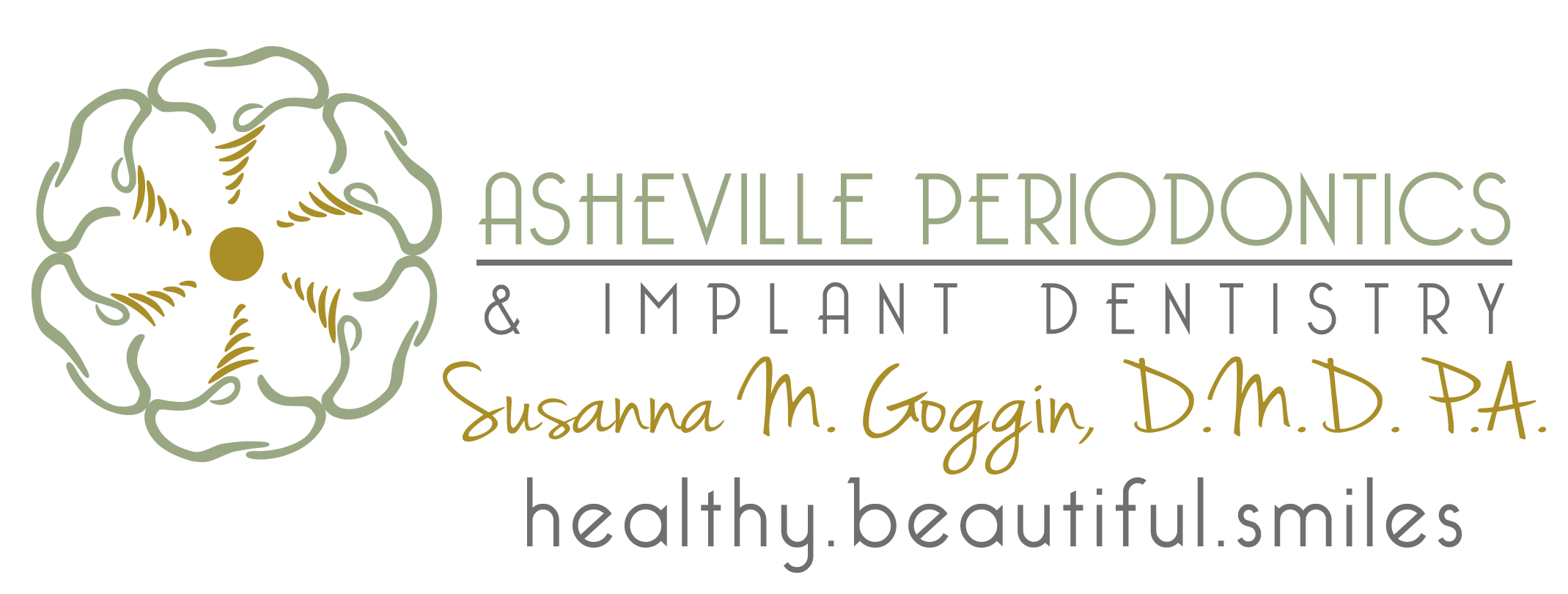Risk Factors of Periodontal Disease
Risk factors of periodontal disease include:
- There is an increased risk for developing periodontal disease as we age
- Smoking and tobacco use also increases the risk for developing periodontal disease at an early age. Smoking also increases the severity of the periodontal disease and diminishes your response or limits the effectiveness to treatment.
- Certain medications can effect your mouth and gum tissues adversely. It is important to bring a complete list of your medications to your first appointment.
- Genetics can also contribute to the severity and onset of someone’s periodontal disease.
- Stress, clenching and grinding can also contribute to bone loss around your teeth and may speed the rate at which the supporting tissues of your teeth are lost.
- Systemic diseases and obesity can also predispose someone to developing periodontal disease.

When to see a Periodontist?
All general dentists are educated and trained to diagnose and treat early forms of periodontal disease. Your dentist may have already begun an initial treatment of your periodontal disease. If your general dentist has a concern regarding your gums and the supporting bone around your teeth he or she may refer you to a periodontist. We will work in collaboration with your general dentist to treat your more advanced periodontal disease and bring you back to optimum health.
Womens Periodontal Health
Throughout a woman’s life, hormonal changes may make the gums more sensitive to plaque. Fluctuations in levels occur during puberty, pregnancy and menopause. At these times, the chance of periodontal disease may increase, requiring special care of your oral health.
Puberty
During puberty, there is increased production of sex hormones. These higher levels increase gum sensitivity and lead to greater irritations from plaque and food particles. The gums can become swollen, turn red and feel tender.
Menstruation
Similar symptoms occasionally appear several days before menstruation. There can be bleeding of the gums, bright red swelling between the teeth and gum, or sores on the inside of the cheek. The symptoms clear up once the period has started. As the amount of sex hormones decrease, so do these problems.
Pregnancy
Your gums and teeth are also affected during pregnancy. Between the second and eighth month, your gums may also swell, bleed and become red or tender. Large lumps may appear as a reaction to local irritants. However, these growths are generally painless and not cancerous. They may require professional removal, but usually disappear after pregnancy.
Periodontal health should be part of your prenatal care. Any infections during pregnancy, including periodontal infections, can place a baby’s health at risk.
The best way to prevent periodontic infections is to begin with healthy gums and continue to maintain your oral health with proper home care and careful periodontic monitoring.
Oral contraceptives
Swelling, bleeding and tenderness of the gums may also occur when you are taking oral contraceptives, which are synthetic hormones.
You must mention any prescriptions you are taking, including oral contraceptives, prior to medical or dental treatment. This will help eliminate risk of drug interactions, such as antibiotics with oral contraceptives – where the effectiveness of the contraceptive can be lessened.
Menopause
Changes in the look and feel of your mouth may occur if you are menopausal or post-menopausal. They include feeling pain and burning in your gum tissue and salty, peppery or sour tastes. Careful oral hygiene at home and professional cleaning may relieve these symptoms.
Mens Periodontal Health
Periodontal disease has been linked with elevated levels of Prostate-specific antigen (PSA). Elevated PSA levels are seen when the prostate becomes inflamed and unhealthy so there may be a link between the inflammation present with periodontal disease and prostate health.
Men with periodontal disease, who are either younger than 30 or older than 70, are at an increase risk for developing impotence again due to the active chronic inflammation associated with periodontal disease.
Prevention of Periodontal Disease
The best ways to initially prevent the start of periodontal disease is to routinely brush and floss your teeth twice daily. It is also important to have routine preventative exams and cleanings with your general dentist so they can detect any areas of concern early on in the disease process. Avoiding certain habits, like smoking, can also help lower your risk for developing periodontal disease.
